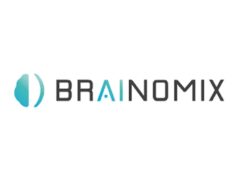 Viz.ai today announced it has received US Food and Drug Administration (FDA) 510(k) clearance for Viz Subdural (SDH). The Viz SDH algorithm uses artificial intelligence (AI) to automatically detect subdural haemorrhage, enabling physicians to triage patients effectively and deliver optimal care, as per a company press release.
Viz.ai today announced it has received US Food and Drug Administration (FDA) 510(k) clearance for Viz Subdural (SDH). The Viz SDH algorithm uses artificial intelligence (AI) to automatically detect subdural haemorrhage, enabling physicians to triage patients effectively and deliver optimal care, as per a company press release.
According to the company, Viz SDH is the only subdural haematoma (SDH)-specific, AI-powered detection and care coordination platform with the ability to identify acute and chronic subdural bleeds, then quickly notify the care team to mobilise in case an immediate intervention is necessary.
“Viz SDH allows us to detect both acute and chronic subdural haemorrhages to better identify early treatment pathways,” said Jason Davies (State University of New York [SUNY], Buffalo, USA). “Acute subdurals require urgent intervention. Therefore, prompt notification will allow us to improve outcomes in emergent cases. Chronic subdurals have a very different pathway and having an algorithm that identifies both can allow us to take better care of our patients. The Viz.ai algorithm ensures that patients are quickly identified and routed to the appropriate therapy.”
A multicentre trial of more than 500 patients demonstrated the high degree of accuracy, with the AI achieving a 94% sensitivity and 92% specificity, as per the release.
“Subdural haemorrhages are growing in commonality but can present different levels of urgency with different clinical pathways,” said Jayme Strauss, chief clinical officer, Viz.ai. “Viz SDH supports physicians by detecting the presence of subdural haemorrhage and expediting communications and image sharing to improve the clinician workflow, and more efficiently and effectively treat patients experiencing subdural haemorrhages. The algorithm is very sensitive and specific, significantly increasing the number of subdural haemorrhages detected and ensuring patients receive the necessary follow-up from this potentially life-threatening disease.”
The Viz SDH module is another of the fast-growing number of FDA-cleared AI algorithms on the enterprise-wide Viz platform, which is clinically validated and reimbursed by Medicare and proven to save time, and improve patient outcomes and access to care, the release details.
In addition, Viz.ai also announced at the ongoing Society of NeuroInterventional Surgery’s (SNIS) 19th annual meeting (25–29 July, Toronto, Canada) that it is partnering with Hyperfine—creator of the first FDA-cleared point-of-care magnetic resonance imaging (MRI) device, Swoop. Together, the two companies will “bring MRI to the patient’s bedside and deliver valuable insights to the clinician’s fingertips for timely decision-making”, a second press release states.
“The partnership between Hyperfine and Viz.ai will help us integrate two breakthrough technologies that already enable us to better assess patients in a time-critical fashion and make timely decisions that will ultimately save more lives and improve outcomes,” said Shahid Nimjee (The Ohio State University Medical Center, Columbus, USA). “By combining these two proven technologies, we hope to further expedite care, when every second matters and transportation presents additional risk.”









